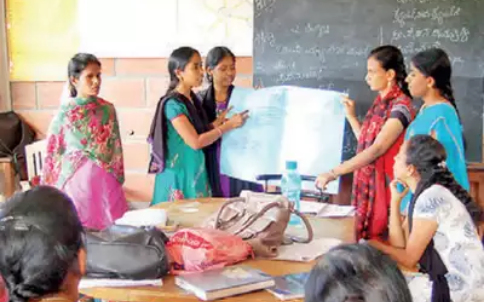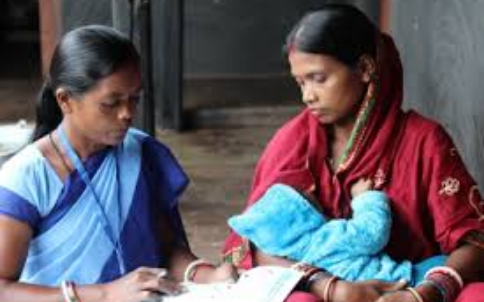The Medical Council of India (MCI) was replaced by National Medical Commission (NMC) as the apex regulatory body for medical education and professionals in India. An act was passed to this effect in 2019 and came into force from September 2020. The change was aimed at bringing reforms in the Medical sector.
Also read: OBESITY AMONG WOMEN IN INDIA AND JUNK FOOD
Community health providers
The former medical council of India had no overarching authority over state medical councils. The new bill enables the commission as controlling body and the central government to remove chairperson or any other member of the commission. The doctors initially were up against constituting NMC and there were strikes and massive show of disapproval to the Act. The contention raised is with regard to the term (CHPs) ‘community Health Providers’. It was argued that qualification and role of CHP are vaguely defined and it gave scope for people having inadequate medical background sneak through to practice medicine.
Also read: Petrol : Price, Policy & Politics
Other couple of issue were 1) The National Exit Test (NEXT) Which was conceptualised as a simple test and which could adversely impact on the career of medical aspirants and II) The role commission in framing guidelines for the determination of fees and other charger in respect of 50% of seats in private colleges. The intentions of the reforms were expected to improve affordability, accessibility and quality of medical education and to promote equitable and universal health care with a goal of achieving community health effectively.

Also read: Climate Smart Agriculture and Need for Appropriate Innovation System
Controversial bridge course
The early draft of the NMC bill envisaged maintenance of a separate register to record entries of particulars and recognised qualifications possessed by licensed/ AYUSH (Ayurveda, Yoga and Naturopathy, Unani, Sidda, Sowarigpa and Homeopathy) practitioners, who qualify the bridge course. This course was expected to be evolved jointly by NMC and central councils of homeopathy and Indian systems of medicine, to enable these professional of alternate medicine to prescribe modern medicine, this was not accepted by medical fraternity all over the country. However, this idea of ‘bridge course’ was shelved. The 2019 bill removed the provision of controversial ‘bridge course’ and instead incorporated a provision for ‘community health providers’ to be maintained in a separate register by the government. Further, the newly formed commission may in specific cases, grant limited licences to persons connected only with modern medical profession at middle level. However, the bill is silent in clearly defining the category of persons coming under scientific modern medicine.
Also read: India’s Agricultural exports
In a vast country with a population of 1.35 billion having doctor- Population ratio of 1:1457, India needs to gear up its health care system both infrastructurewise and quality wise. Advanced countries also have para medicals practicing medicine and shouldering part in numerous responsibilities. In USA, the nurses, physician assistants and medical assistants provide not only primary health care, but also acute health care in some contexts. However, all of them are connected with modern medicine.They were able to fill the gap created by non- availability of fully qualified medical practitioners coupled with work flow modifications.
Also read: Agriculture subsidies in Inida
Public health facilitators
Professionals from the disciplines of alternate medicine have been practicing in India from times immemorial. During the British period and early times of Independence several para medical (Compounders) were given registration for practicing medicine for routine cases due to acute paucity existing for barefoot doctor even now. The dire need for public health facilitators has increased leaps and bounds. The theory of experience based treatment was not, however, received sympathetically for several inherent reasons. The controversy over non-trained and non-educated professionals for practicing medicine is not welcome. The proposed bridge course in the act was thus faced with unsurmountable hurdles.
Also read: MSWM in Urban Affairs
A three-year diploma course in rural health care was started in Chhattisgarh during 2001 was given up in 2008 because of several legal issues and institutional roadblocks linked with the course content. Yet, this experiment showed way for an amount of success and improvement over non-physician situation in catering to rural health facilities.
Also read: Ageing India looks for a decent living
Caution is needed
Passing of the act may help break new pathways for community health. But it is a long way to walk framing guidelines equipping, selecting, training and identifying CHPs and middle level Health practitioners (MHLPs). However, caution is absolutely needed in averting the impending danger with unlicensed an unqualified getting legitimacy by unhealthy mergers of medical disciplines.
Also read: The Lost Horizons
The solution is clear scaling up the infrastructural facilities with qualified medical professionals, some of them staffed in rural referral hospitals, which can be located in the peripheral towns of the cities to which villages have access for free movement. As earlier suggested upgrading and developing skills and knowledge of CHPs in the rural areas and who should work under the supervision and watchful eye of qualified doctors at the rural referral hospitals. For all this to happen the government must be liberal to accord perks, dignity and motivation to the medical professionals at different levels of hierarchies.
Also read: Pandemic and the Pandora’s box




